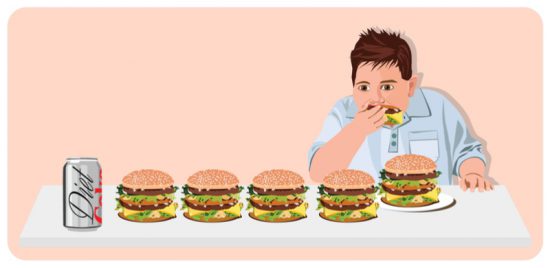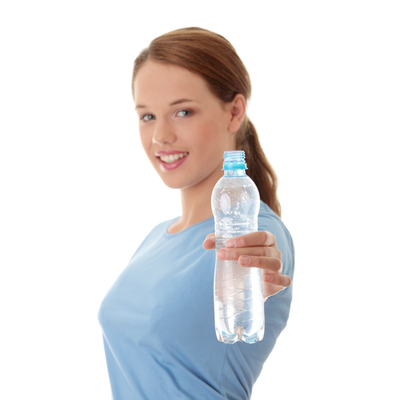U.S. children and teens who drink low-calorie or zero-calorie sweetened drinks take in 200 extra daily calories compared to those who drink water. Which is not as surprising as the fact that they take in the same number of calories as those who drink sugar-sweetened beverages. In other words, drinking diet soda doesn’t help kids lower their caloric intake. Not even a little bit. Whereas drinking water, does. These are the conclusions of a study published in the medical journal, Pediatric Obesity.
“These results challenge the utility of diet or low-calorie sweetened beverages when it comes to cutting calories and weight management,” said Allison C. Sylvetsky, PhD, an assistant professor of exercise and nutrition sciences at the George Washington University Milken Institute School of Public Health (Milken Institute SPH) and lead author of the study. “Our findings suggest that water should be recommended as the best choice for kids and teens.”
Does Diet Soda Help Weight Management? Experts Have No Clue
An earlier 2017 study by Sylvetsky and colleagues discovered that kids often use low-calorie sweeteners, not only in diet soda, but in all sorts of drinks, foods, and snack items. Kids use diet sweeteners so often and so much that their consumption of the stuff rose 200 percent from 1999 to 2012. In spite of the popularity of diet sweeteners, however, experts really have no clue if they affect calorie intake or even if they help kids with weight management—which was the whole idea in the first place.

What Sylvetsky and team did this time around, was look at what kids and teens ate and drank each day. This involved looking at data collected from 7,026 youths enrolled in the National Health and Nutrition Examination Survey between 2011 and 2016. The kids and teens in this survey reported what they ate and drank during a 24-hour period. Sylvetsky’s team looked at how many sweet beverages kids drank, whether sweetened with low-calorie sweeteners or with sugar.
What the researchers found is that the kids who drank low-calorie sweetened beverages like diet soda, not only took in more calories compared to water-drinkers, but also took in more calories from added sugar in other drinks and foods, compared to kids who drank only water.
Here are some other findings from the study:
- Compared with kids who drank mostly water, kids who drank low-calorie sweetened beverages, sugary beverages, or a combination of both, took in 196, 312 and 450 more calories a day.
- Compared with kids who drank mostly water, kids who drank low-calorie sweetened beverages, sugary beverages, or a combination of both, took in 15, 39 and 46 more grams of added sugar, or 60, 156 and 184 extra calories from sugar.
- No differences in calorie intake were seen between kids who drank low-calorie-sweetened beverages and those who drank sugar-sweetened beverages.
- The highest calorie intakes were seen in children and teens who drank both low-calorie sweetened beverages and sugary beverages.
Why is this so important just now? Because of the current overweight and obesity epidemic in the United States. One in three U.S. children are now either overweight or obese, which puts them at risk of developing type 2 diabetes and other serious health problems.

On the one hand, this study wasn’t meant to show that drinking low-calorie beverages makes kids overweight or obese. We just don’t know enough to say that. What this study does show us is that sweetened drinks, no matter whether they are sweetened with low-calorie sweeteners or sugar, raise a youth’s intake of both calories and sugar. The study also shows us that it’s far better for kids not to get used to sweet drinks in the first place. Water is best.

We also don’t know how low-calorie sweeteners will affect our children’s health in the long run. A scientific advisory group for the American Heart Association, for instance, cautioned “against prolonged consumption of low-calorie sweetened beverages by children.”
Sylvetsky agrees. The scientist says that kids should be drinking water, not soft drinks, in the first place. Is your kid still craving something sweet? Sylvetsky says to try some sparkling water with a splash of 100 percent fruit juice, or water with some pieces of fruit mixed in. We’d add that a sprig of mint or a cinnamon stick in cool water also satisfies the need for something sweet. It just takes a little adaptation, time, and patience to learn a new habit to replace the old.
Tell your kids about this study. Offer to help them find alternatives to diet soda and sugar-sweetened beverages. And then follow through. Your kids are counting on you to guide them to a healthier future.
Found what you just read useful? Why not consider sending a donation to our Kars4Kids youth and educational programs. Or help us just by sharing!
